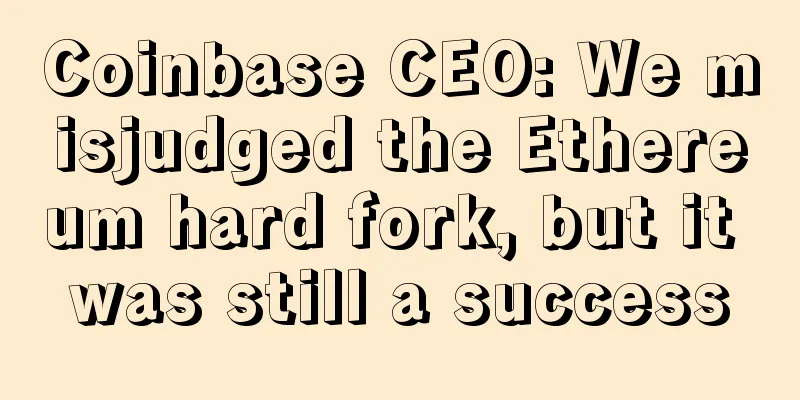Cryptocurrency scams are rampant: How you can protect your assets

|
The recent popularity of NFTs, with prices rising tenfold or even dozens of times, has driven many investors into a frenzy. However, NFT transactions are not without risks of scams and information leaks. Before that, digital currencies such as Bitcoin, Monero, Ethereum and Dogecoin were all over the Internet. The soaring value of some projects brought a lot of wealth to investors. The wealth gained from mining virtual currencies can be compared to the gold rush of the 1800s. A range of scams targeting cryptocurrencies are also emerging . In fact, if you’re interested in cryptocurrencies today, you’re likely at significant risk of being scammed. It’s an unregulated world, and bad actors can often take advantage of you when you’re least prepared . Fraud prevention rules are essential. Everything you read online should be carefully scrutinized and fact-checked. Don’t believe the hype and you’ll have a great chance of staying safe. Why are cryptocurrency scams on the rise?Fraudsters are masters at using current events and popular trends to deceive their victims. The malicious hype by some media has a pernicious effect, forming an endless cycle of malicious hype of virtual currencies. As a result, according to the FTC, American civilians lost approximately $80 million (€71 million) to thousands of cryptocurrency scams between October 2020 and May 2021. In the UK, the figures are even higher: police say victims lost more than £146 million (€172 million) in the first nine months of 2021 . Why are there more and more scams? Because: Compared to traditional stock markets, there are few regulations governing the cryptocurrency market for investors Massive amounts of media dissemination of information have become a means of assisting phishing and fraud Surging cryptocurrency prices lure investors looking to get rich quick Social media amplifies false news There is also the lure of liquidity gains, which phishers can use as bait What are the most common cryptocurrency scams?If you store your virtual currency securely on a cryptocurrency exchange, you may also be vulnerable to hacking . In many cases, threat actors have successfully extracted funds from these businesses, sometimes making off with hundreds of millions of dollars . However, usually in real life, SoV companies promise to compensate their innocent users. Unfortunately, for victims of cryptocurrency fraud, there are no such guarantees . So it's important to be aware of these scams . Here are some of the most common ones: Ponzi Scheme It's an investment scam where victims are tricked into investing in non-existent companies or "get-rich-quick schemes" that actually do nothing more than line the scammer's pocket. Cryptocurrencies are well suited to this, as fraudsters are always inventing new, unspecified “cutting-edge” technologies to lure investors and generate greater virtual profits . In any case, when the currency is virtual, it is easy to falsify data. Based on false information, scammers encourage investors to buy shares in little-known cryptocurrency companies. The share price then rises, and the fraudsters sell their shares for a tidy profit , leaving the victims with nothing. Fake celebrity endorsements Scammers hijack celebrity social media accounts or create fake accounts and encourage followers to invest in said fake schemes. In this case, the scammers made off with around $2 million, and they even put Elon Musk’s name into the Bitcoin address to make the ruse more believable. It looks like someone has hacked the Indian Medical Association’s Twitter account and is impersonating Elon Musk in a crypto giveaway scam. @elonmusk #CryptoScam pic.twitter.com/fkCZHh1uOC — Sidhartha Shukla (@sidcoins) January 2, 2022 Fake payment redirect Fraudsters send emails and messages offering victims access to their assets stored on cryptocurrency exchanges . The only problem is that users usually have to pay a small fee first . In the end, the exchange doesn’t exist and their money is lost forever . Imposter App Cybercriminals upload malicious programs to app stores disguised as malware. If you install one, it could steal personal or financial details or plant malware on your device . Others might trick users into paying for non-existent services or try to steal login information for your cryptocurrency wallets. Fake news propaganda scam Sometimes the stories behind the fake news are pretty sordid. Scammers will create fake press releases designed to drive up prices and then sell them at a high price, just to lure people in . Phishing Phishing is one of the most popular ways for fraudsters to operate. Emails, texts, and social media messages are disguised to appear to be sent from a legitimate, trusted source. Sometimes, that source is a credit card provider, bank, or government, and when they ask for something to be paid in cryptocurrency, or through a private channel , something is not right. How to avoid becoming a victimThe best weapon against fraud is skepticism. Unfortunately, we live in an age where not all information is true. And a lot of it is explicitly designed to deceive, to sneak in, and to steal. With that in mind, try the following tips to avoid being scammed: Never proactively give personal details to someone you don't know about via email, text, social media, etc. It could actually be a hacker who has hijacked their email or social account. If something seems too good to be true, it usually is. Treat any investment proposal with a large dose of skepticism. Turn on two-factor authentication for any cryptocurrency accounts you own Forgo any investment “opportunities” that require upfront payment Never use unofficial app stores Download security software to your device from a reputable provider No matter how enthusiastic the people around you are about investing, please remember to stay calm and stay away from hype and scams. |
<<: What is Bitcoin mining difficulty: How is it calculated?
>>: Bitcoin: Bitcoin whale activity has fallen to its lowest level in a year
Recommend
A complete analysis of the facial features of cheating women
As one of the traditional physiognomy techniques, ...
What does a mole on the left side of a woman's forehead mean?
The forehead plays an important role in physiogno...
Filecoin – Introduction to Precommit2 Calculation
Filecoin – Introduction to Precommit2 Calculation...
Teach you how to read palm lines
Each of us has different palm lines, and palm lin...
Exclusive interview with OpenDAO: How did it come into being in 6 days? It does not compete with OpenSea and hopes to break the internal circulation of NFT and introduce newcomers
On December 24, OpenDAO went online and announced...
Multiple factors drive ETH transaction fees to soar, Ethereum miners earn more than Bitcoin miners
According to Bitcoinist on June 8, Ethereum trans...
Detailed explanation of moles: What do the moles around the belly button mean?
Detailed explanation of moles: What do the moles ...
Bitmain Hard Fork
Author: Jiang Xiaoyu, Editor: Qin Jin Bitmain, wh...
Ernst & Young to auction 24,518 Bitcoins in second auction globally
Ernst & Young (EY) plans to auction 24,518 bi...
Great wealth and honor Fuxi bone Fuxi bone position bone diagram
Great wealth and honor are associated with the Fu...
Zcash mining machine Antminer Z9 mini is now available for sale overseas
Bitmain's overseas website starts selling Ant...
Physiognomy: What does a mole on a man's philtrum mean?
The philtrum is the straight groove from our nose...
Filecoin bears: easy to collapse, high valuation, and high policy risks
Filecoin was once claimed that everyone could min...
The facial features of women who have a lot of peach blossoms with the opposite sex. What are the characteristics of women who have a lot of peach blossoms with the opposite sex?
Everyone's facial features also represent thei...
Wu Jihan: Zhan Ketuan destroyed billions of dollars of value of Bitmain
Bitmain founder Jihan Wu responded to the "Z...









